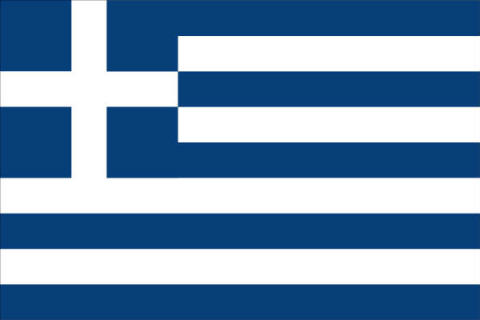Login form
Customs of Greece
 Marriage and Family
Marriage and Family
Many Greek women marry in their early 20s, but the men tend to marry later, in their mid-20s or early 30s. Although women have gained greater prominence and rights in recent decades, Greek society is still largely male dominated. For the older generation, family, religion, tradition, and education are the core values. The elderly are respected and have considerable authority.
Eating
The most common meats are beef, pork, lamb, and chicken. Fish and seafood are found mainly on the coast and in cities but, with the exception of squid, are often expensive. Olives are grown throughout
Lunch, served in the early afternoon between noon and 2 pm, is traditionally the main meal of the day. However, because of changing work patterns, many now eat their main meal in the evening, often not until after 9 pm.
At restaurants, a group will often order a number of different dishes for everyone to share. It is not unusual for diners to go into the restaurant kitchen and choose their dinner by looking into the different pots of food.
Socializing
A handshake is normal in greeting someone, but friends and relatives hug and kiss each other, and young men often slap each other on the back or arm at shoulder level instead of shaking hands. There are many different verbal greetings; their usage depends on the situation. The term for “Good morning” is Kaliméra sas. “Good evening” is Kalispéra sas.
Close friends and family members are called by their first names, but acquaintances and strangers are addressed by their title (such as Doctor, Professor, or Mrs.) and surname.
Ancient Greeks believed a stranger might be a god in disguise and were therefore kind to all strangers. This tradition of hospitality continues to the present day. It is common for friends and relatives to drop by unannounced in small towns. This happens less often in large cities, but only because schedules are more hectic. Greeks enjoy inviting friends to their homes for dinner or for special occasions, such as name days (the feast day of the saint after whom one is named) or New Year’s Day. Christmas and Easter are days for family gatherings.
Recreation
The Greeks enjoy soccer, basketball, swimming, and sailing. Socializing at home or in cafés and bars is one of the main recreational activities. Because of the Mediterranean climate, people spend a great deal of time outdoors, and cafés and bars with outside tables are ideal for socializing. Television is also popular, and in cities many people go to the cinema or theater.
Holidays and Celebrations
An interesting tradition surrounds Epiphany (6 January), also known as the Blessing of the Waters Day after the Orthodox belief that on this day Jesus Christ was baptized in the
Shrove Monday is the Monday before Ash Wednesday, and it is also called Clean Monday in
Forty Martyrs’ Day on 9 March is celebrated in honor of 40 Roman soldiers who refused to make sacrifices to Roman gods on the grounds of their Christian faith. They were made to stand naked on an icy pond and perished in the night. The 40 soldiers are honored with special foods, including pastry with 40 layers and stew with 40 herbs.
An important day for Greeks is 25 March, which marks the date in 1821 when
Greeks celebrate Good Friday, the Friday preceding Easter, through Easter Monday, the Monday following Easter. One Easter tradition is to dye hard-boiled eggs red. At a Saturday night feast, pairs crack their eggs together; the one who cracks the other’s egg is said to have good luck all year.
Labor Day is observed on 1 May. Later in the month, 26 May, is the Day of the Holy Spirit. Whitmonday is observed on the Monday after Whitsunday, which is 50 days after Easter. The Assumption, when the Virgin Mary’s body is said to have been “assumed” into Heaven, is celebrated on 15 August.
Ohi (“No”) Day (28 October) commemorates Greek resistance to Italian fascist invasion in World War II. On this day in 1940, the Italian ambassador to
Greeks celebrate Christmas on 25 and 26 December. New Year’s Day was traditionally a day of gift giving, but most people now exchange gifts on Christmas Day.
Most towns in
Source: Encarta Interactive World Atlas

